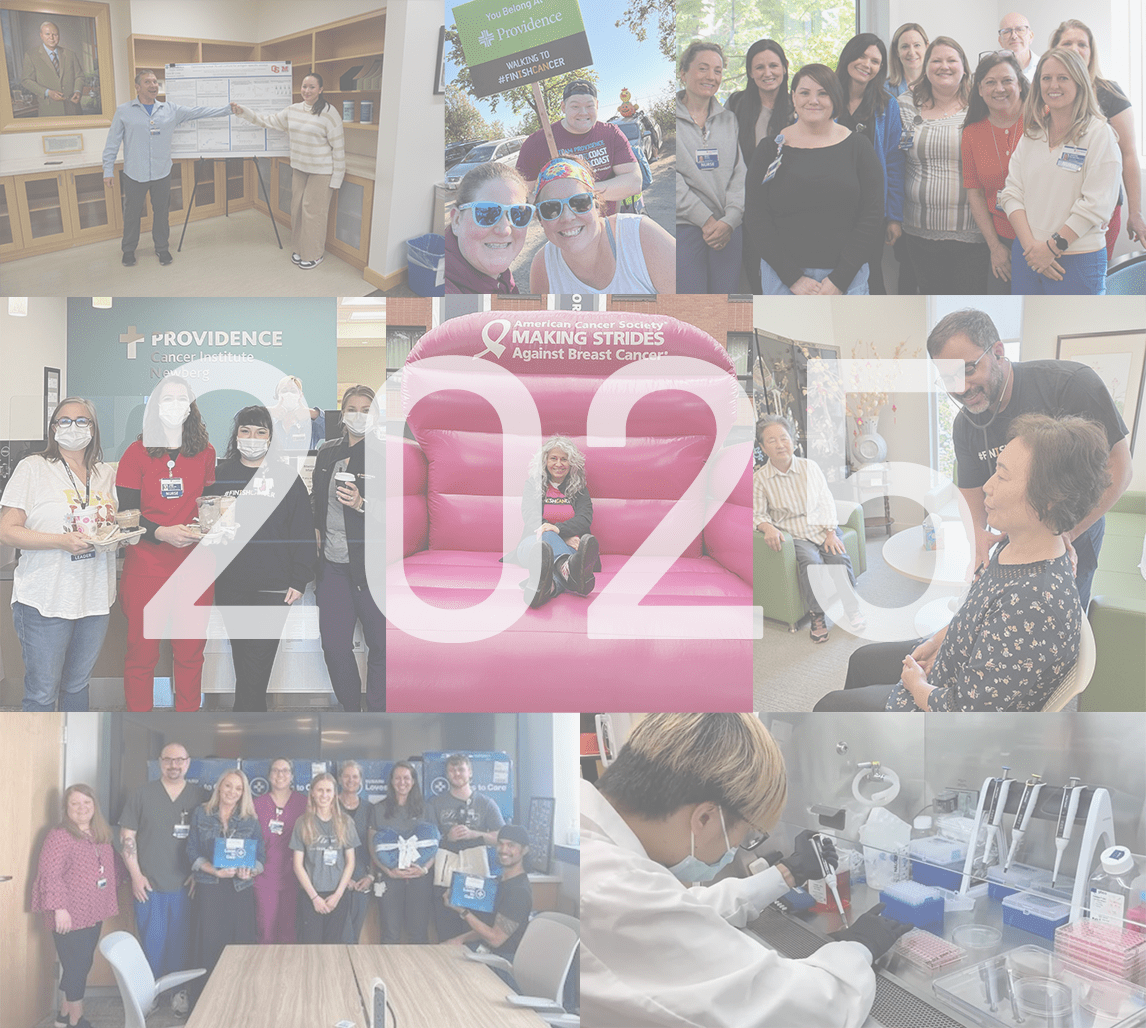Advances in early-phase clinical trials help develop new cancer therapies
Consultation and review by Rachel E. Sanborn, M.D., medical director, Providence Thoracic Oncology Program and medical director, Phase I Clinical Trials Program, Earle A. Chiles Research Institute and Providence Cancer Institute of Oregon
In the past, standard models of phase I/II studies sought to determine the dose selection and safety profile of an investigational therapy. These studies, however, have advanced to evaluate a range of other clinical criteria, including immune-based and genetic biomarkers.
As a result, the Earle A. Chiles Research Institute, a division of Providence Cancer Institute of Oregon, offers patients one of the most innovative, advanced programs of phase I cancer research on the West Coast.
Advances in phase I clinical trials
Traditionally, phase I/II studies were limited to patients with advanced disease, but some modern studies also are designed for patients with localized disease.
Modern phase I studies also can include the early introduction of experimental treatments in clinical care, either in combination with traditional standards of care or as a first-line treatment. Furthermore, modern phase I studies incorporate multiple patient cohorts. By designing studies with multiple cohorts, researchers can evaluate therapies for a wider group of patients with different types of cancers.
Depending on the relative effectiveness of an agent in an early-phase trial, the phase I study can lead to approval of the agent and new therapies that are put into practice more quickly.
Wide range of immunotherapy clinical trials
Today many cancer clinical trials are designed to study immunotherapy medications. Trials might evaluate the safety and efficacy of a medication alone, in combination with other drugs, or with radiation or chemotherapy.
Researchers at the Earle A. Chiles Research Institute conduct investigational and combinatorial clinical studies that focus on:
- Adoptive cellular therapy, a type of immune therapy for people with cancers of the blood, kidney and epithelial tissues lining the pancreas, stomach and other organs
- Cancer genome sequencing for precision treatment and personalized care
- Other new types of immunotherapies for different cancers
- Combination of immunotherapy with radiation, surgery and other therapies
- New targeted therapies, designed to specifically treat cancers with certain mutations in the DNA of the cancers that may make them more sensitive to new treatments
- Side effects of chemotherapy, radiation or surgery, and improved quality of life for cancer patients
At any given time, Providence has more than 160 trials open for enrollment. These include Providence Cancer Institute’s investigator-initiated trials and cooperative group studies through participation in the National Cancer Institute Community Oncology Research Program (NCORP), which includes the Southwest Oncology Group (SWOG), NRG Oncology and other cooperative groups.
It is rewarding to see some of the therapies we study in trials become the new standard of care for patients with cancer.
Enrolling and referring patients in clinical trials
New studies are added to our clinical research portfolio frequently. Visit our website for a list of studies by major organ and cancer condition that are open for enrollment:
- Brain cancer, including glioblastoma and cancers of the neurological system
- Breast cancer, including cancers of the connective tissue, lobules and ducts
- Endocrine cancer, including cancers of the thyroid and parathyroid glands
- Gastrointestinal cancer, including cancers of the bile duct, colon, esophagus, gallbladder, liver, pancreas, rectum and stomach
- Genitourinary cancer, including cancers of the bladder, kidney and prostate
- Gynecologic cancer, including cancers of the cervix, ovary, uterus, vagina and vulva
- Head and neck cancer, including cancers of the larynx, oral cavity, pharynx, salivary glands, sinuses and tongue
- Hematologic cancer, including cancers of the blood such as leukemia, lymphoma, myelodysplastic syndromes and myeloma
- Lung cancer, including small-cell and non-squamous non-small cell carcinomas
- Multiple cancers, including multi-indication studies and advanced or metastatic cancers
- Skin cancer, including melanoma and carcinomas of the basal cells, Merkel cells and squamous cells
Contact our clinical research office to learn more or to refer a patient:
- Submit a referral form
- Send an email to: CanRsrchStudies@providence.org




